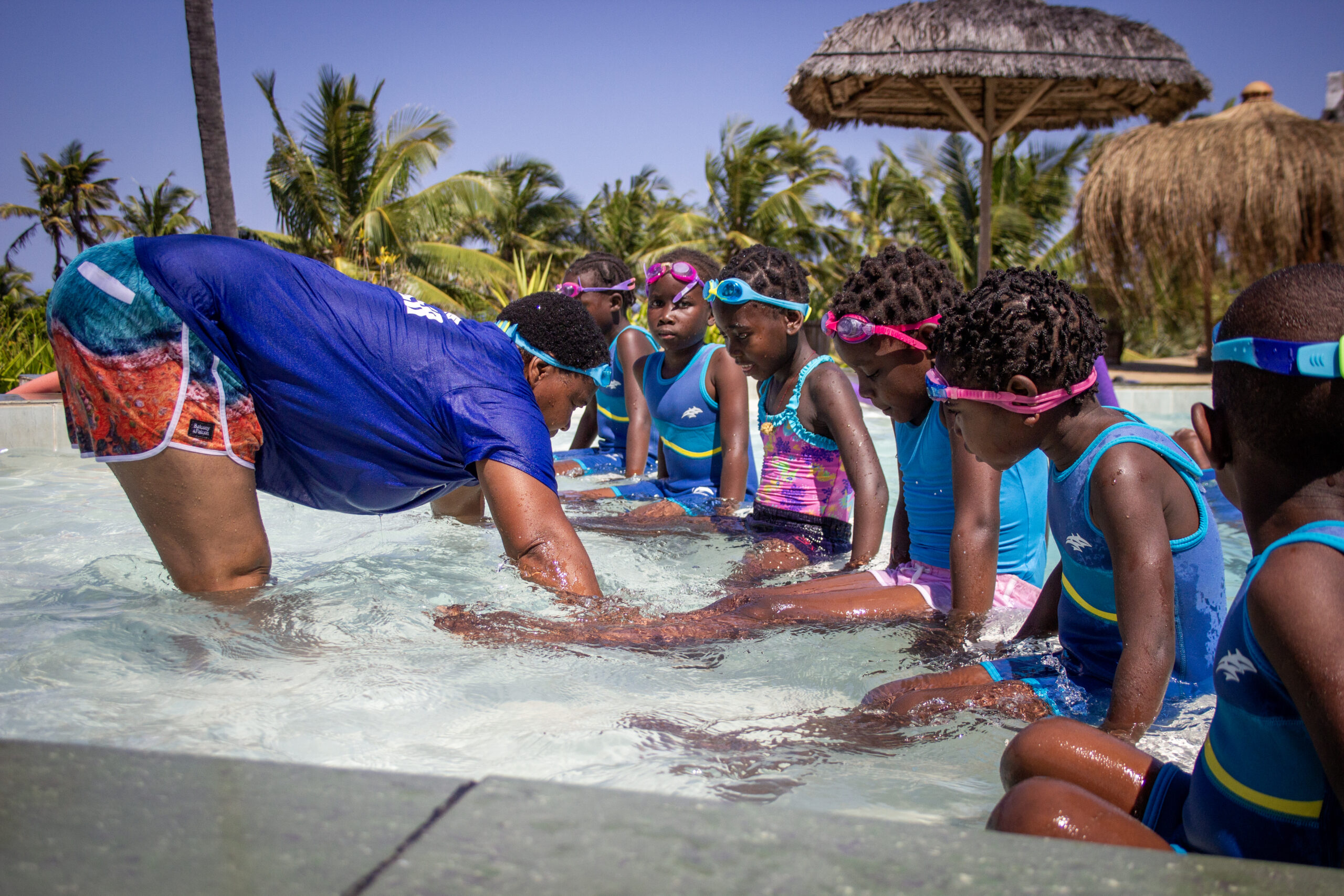Supporting nature positive livelihoods for Indigenous women in the Bolivian Amazon
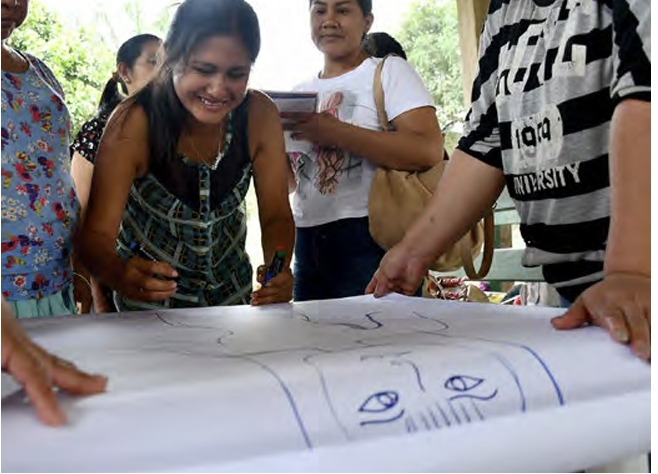
Bolivia’s Madidi National Park is part of the Amazon rainforest ecosystem and one of the world’s biodiversity hotspots. Since 2014 Practical Action has worked with indigenous communities living in the buffer zone around the Madidi park. Together with Indigenous People’s councils of the Tacana Nation, Practical Action has been working to strengthen community-based forest monitoring… Read More
#EuCuidoDoMeuQuadrado #ITakeCareOfMySpace
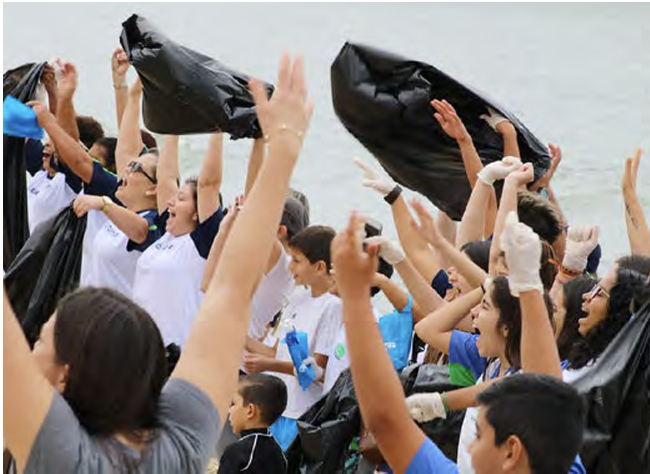
Instituto Limpa Brasil empowers citizens in fostering waste management and recycling in 1,200 cities across Brazil. Over 650,000 volunteers are engaged in the #EuCuidoDoMeuQuadrado program, supporting an interactive map to alert on irregular garbage spots, as well as inform on waste disposal ecopoints and circular economy cooperatives. 1,500 community leaders working with 96 ecopoints contribute… Read More
Women’s climate school
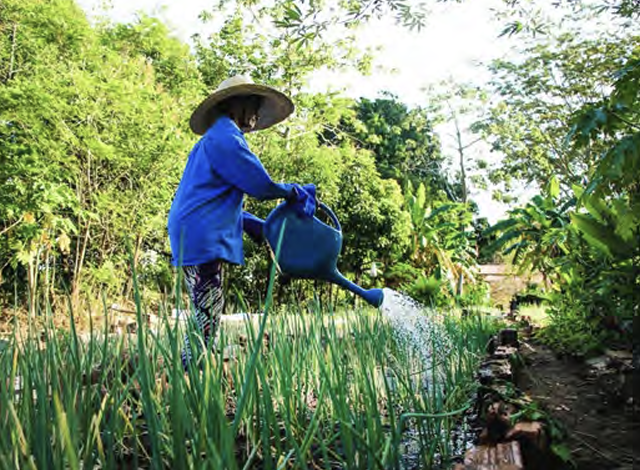
Filha do Sol recognizes and supports women’s leadership in climate action. This women-led CSO created the Women’s Climate School, offe- ring two vocational programs with technical skills focused on community- led climate projects with seed funding. The school also selects local leaders from frontline communities to be trained in climate policy and leadership, join a… Read More
Indigenous Peoples’ culture-led regenerative agriculture
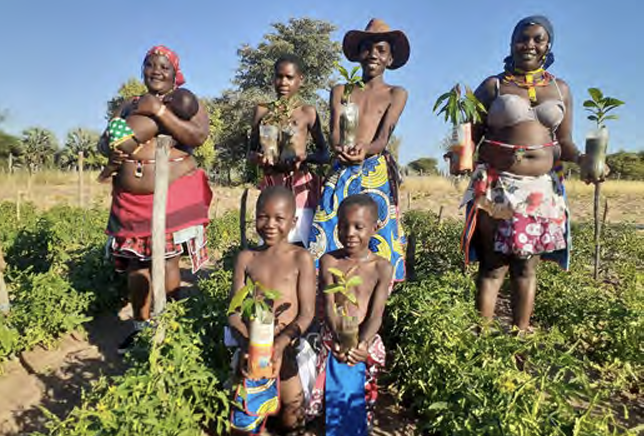
To address the needs of pastoralist Ovazemba communities in Otjiyandjamwenyo village in Namibia, facing recurring droughts with loss of livestock, The Marginalized Mirror supports culture-led, gender- responsive planning and implementation of regenerative agriculture. Knowledge sharing sessions on vermicompost, crop rotations, permaculture and drip irrigation were organised. A vegetable garden was set-up and managed by women… Read More
Women of Oubritenga’s milky way
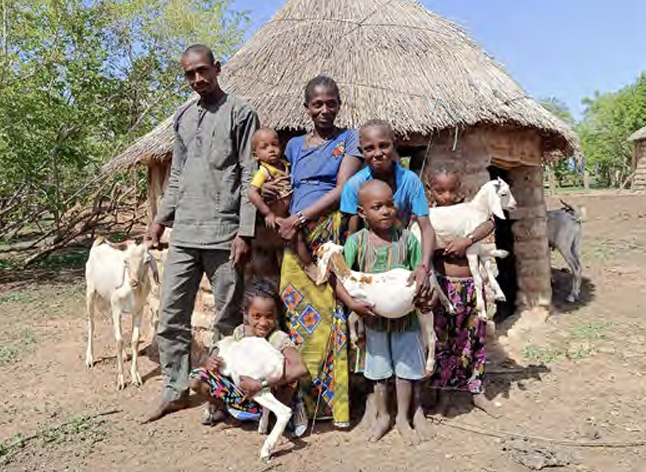
In an arid province of Burkina Faso, 150 women cattle and goat breeders are playing a crucial role in securing the food sovereignty of 6 villages by adopting resilient pastoral practices and establishing a local dairy value chain. They utilize manure to enrich the soil and grow local forage crops to better feed their livestock…. Read More
Weerwi: breaking taboos about menstrual health and climate justice
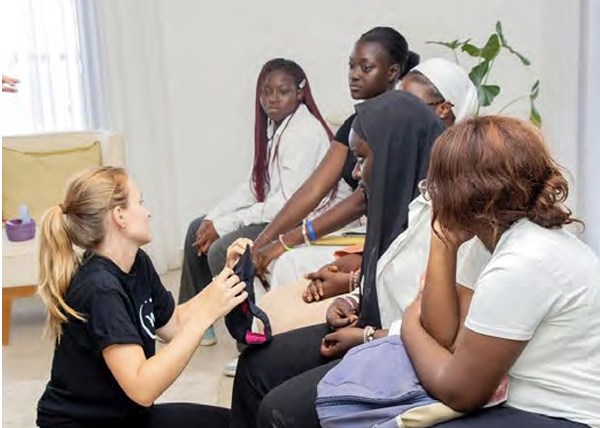
A unique initiative launched by social enterprise ApiAfrique in Senegal, Weerwi, helps girls and women monitor their menstrual cycle and sexual health through a free mobile app, an online forum and edu- cational content in the form of a web series. The company also offers a printed booklet and community exchange workshops. Weerwi res- ponds… Read More
Women Barefoot Ecologists bridge ancestral knowledge with modern science to protect their ecosystems
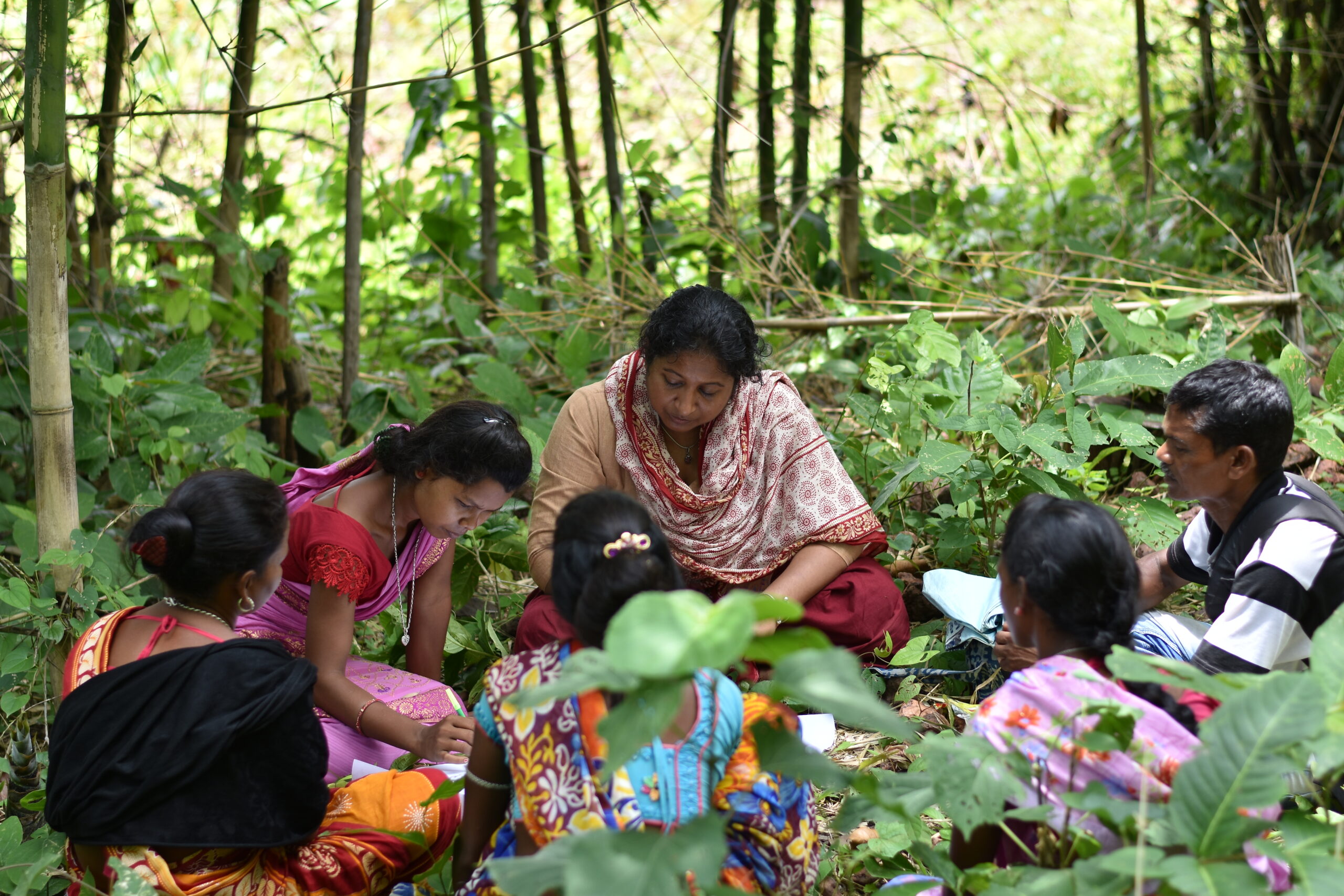
Description of the project: Women Barefoot Ecologists are 20 indigenous women from Tamil Nādu and Kerala who have strengthened their capacities to link Traditional Ecological Knowledge (TEK) with modern scientific methods to observe and monitor climate impacts on their forests, rivers, and farms. Practical observation with village elders as well as data collection and analysis… Read More
Protecting Indian women farmers from climate displacement through legal empowerment
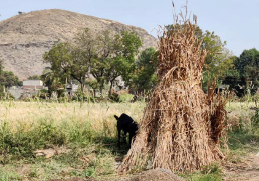
Description of the project: The Marathwada region in India has experienced five serious droughts since 2010, leading to debts, farmer suicide, and climate migration. Women farmers are not recognised as agricultural workers nor landowners by the state, barring them from access to public subsidies. Earth Refuge created an Emergency Response (ER) legal toolkit to defend… Read More
WEnCoop: first women entrepreneurs’ energy cooperative in Greece
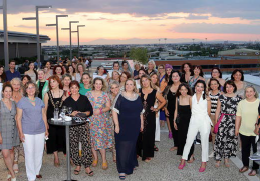
Description of the project: WEnCoop is a women-led energy cooperative initiated by the Greek Association of Women Entrepreneurs and founded by 60 businesswomen in June 2021. It aims to promote clean, sustainable energy innovation, address energy poverty and transform consumers into prosumers while achieving the EU climate goals. WEnCoop’s members and direct beneficiaries are women… Read More
Strengthening women in Benue communities to combat reckless mining
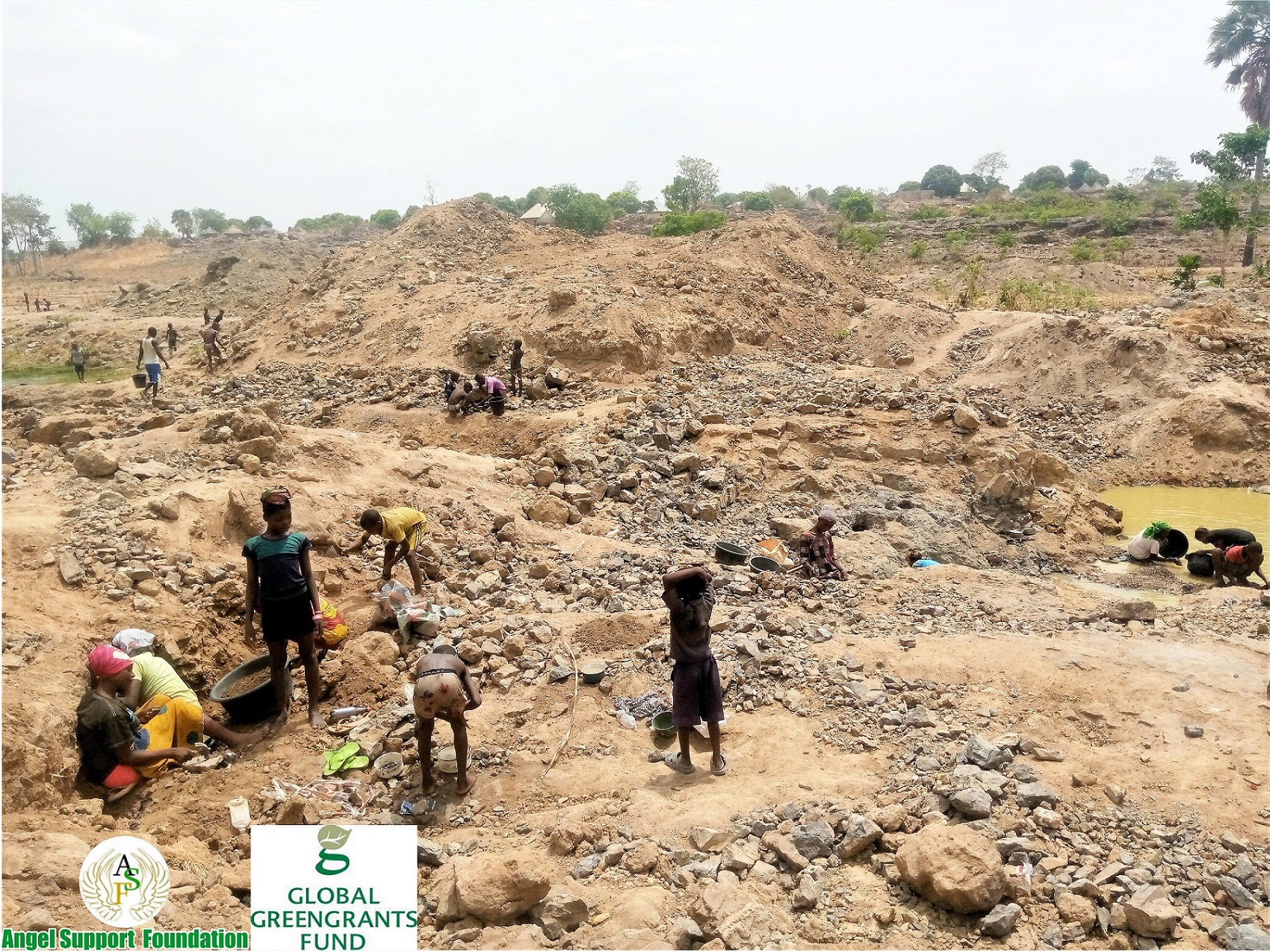
Description of the project: The Angel Support Foundation strengthens citizen’s capacities in Benue State, Nigeria, threatened by extractive mining, to engage in natural resource protection. 500 women in several communities have been trained to serve as liaison officers with customary, religious and opinion leaders engaging in community decision making about mining and the safeguarding of… Read More
Communities of the Sierra de las Minas resisting for the defense of their territory
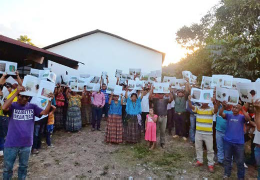
Description of the project: Sierra de las Minas is an important water catchment and biosphere reserve in Guatemala, confronted with extractive mining. The “Centro de Reflexiones” strengthens the capacities and knowledge of women and men from communities in resistance. Through a model called “Rakun Akal” (sons and daughters of the Earth), political training workshops… Read More
Gender budgeting for locally led climate adaptation in Nepal
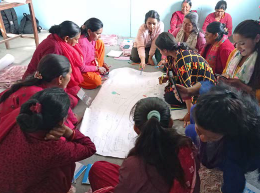
Description of the project: Using a Feminist Participatory Action Research (FPAR) methodology, WoNEE empowered 100 local women in the Satkanya and Bhaise communities in Nepal to act on climate adaptation by successfully advocating for gender-responsive budgeting and policymaking. Capacity building actions help formulate strategies for resilient infrastructure development and to create an enabling environment for… Read More
Women in Energy Enterprises in Kenya – WEEK2
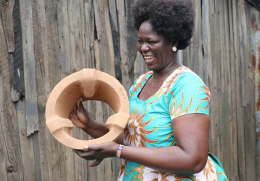
Description of the project: From 2019 to 2022, WEEK2 promoted gender equality in Kenya’s energy sector. Kenyan women face barriers in access to energy technology, information and finance, leading to low participation in sustainable energy markets. 84% of rural households rely on wood as their main fuel, leading to GHG emissions and deforestation. Health impacts… Read More
Green energy in rural Uganda for households and agricultural cooperatives
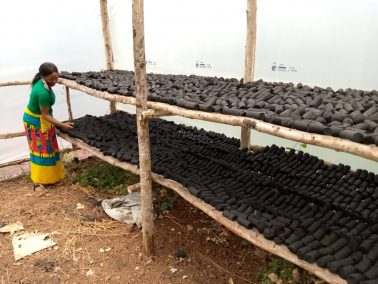
Description of the project: The project, implemented by WECF Germany & ARUWE, promotes affordable and decentralized renewable energy solutions with a gender perspective. Implemented technologies include biogas, briquettes (replacing firewood), off-grid photovoltaic systems and solar pumps for farming and household needs. 50 women and girls have benefitted from a “Female Energy Ambassadors” training with technical and… Read More
Amplifying women’s voices in climate adaptation policies through visual storytelling
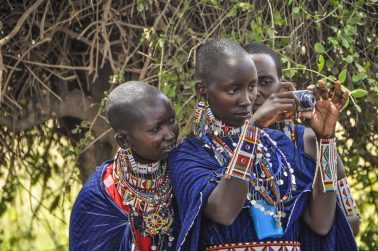
Description of the project: Recognizing the need to amplify the voices of underrepresented women in National Adaptation Plan (NAP) processes, the NAP Global Network has partnered with Lensational, a social enterprise whose mission is to empower women from marginalised groups and communities using photography. The project is providing participatory photography and storytelling training to women… Read More
Local women’s groups engaging with the Green Climate Fund (GCF) in Nigeria
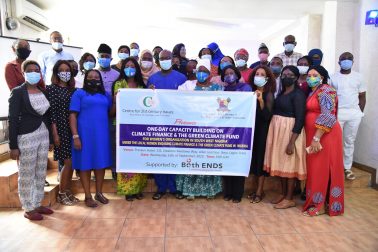
Description of the project: This two-year project has built the capacities of local women’s groups in Nigeria to advocate for gender responsive climate finance and actively engage in the Green Climate Fund’s evaluation processes. By training women on the fundamentals of climate finance and the GCF mechanism, the project facilitates women’s groups collaboration with Nigeria’s… Read More
Eperara women of Ecuador claim collective health in times of COVID-19
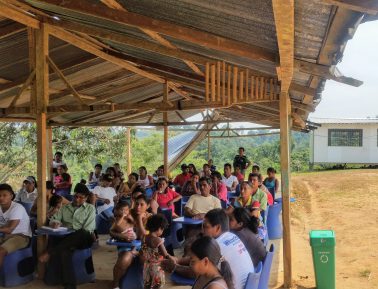
Description of the project: The project is carried out in the indigenous Ecuadorian community of Eperara de Santa Rosa. Women’s groups organised themselves to reclaim their ancestral medicine culture, while strengthening their climate resilience. Based on a collective decision in favor of the community’s health, they decided to take their own actions in response to… Read More
Empowering rural women through integrated, climate resilient development
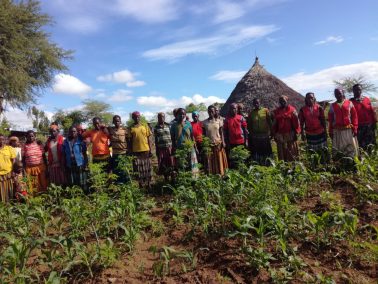
Description of the project: Since 2016, UEWCA has enhanced the climate resilience and livelihoods of over 49,000 women in rural communities of Ethiopia, with an integrated approach. Their capacities have been strengthened in climate mitigation and adaptation techniques, environmental protection strategies and income diversification. By implementing integrated agroecology -crop and livestock-, efficient stoves and watershed… Read More
Empowering youth to engage in climate action through simulations and local advocacy
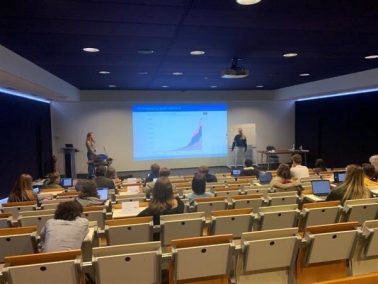
Description of the project: ECAP is a female-youth-led project that offers a holistic climate education and advocacy programme based on computerized simulations. Using an MIT Sloan computer model, the ECAP team facilitates interactive simulation workshops, and guides participants on how to tackle climate change from a scientific and systemic perspective testing the effectiveness of solutions… Read More
